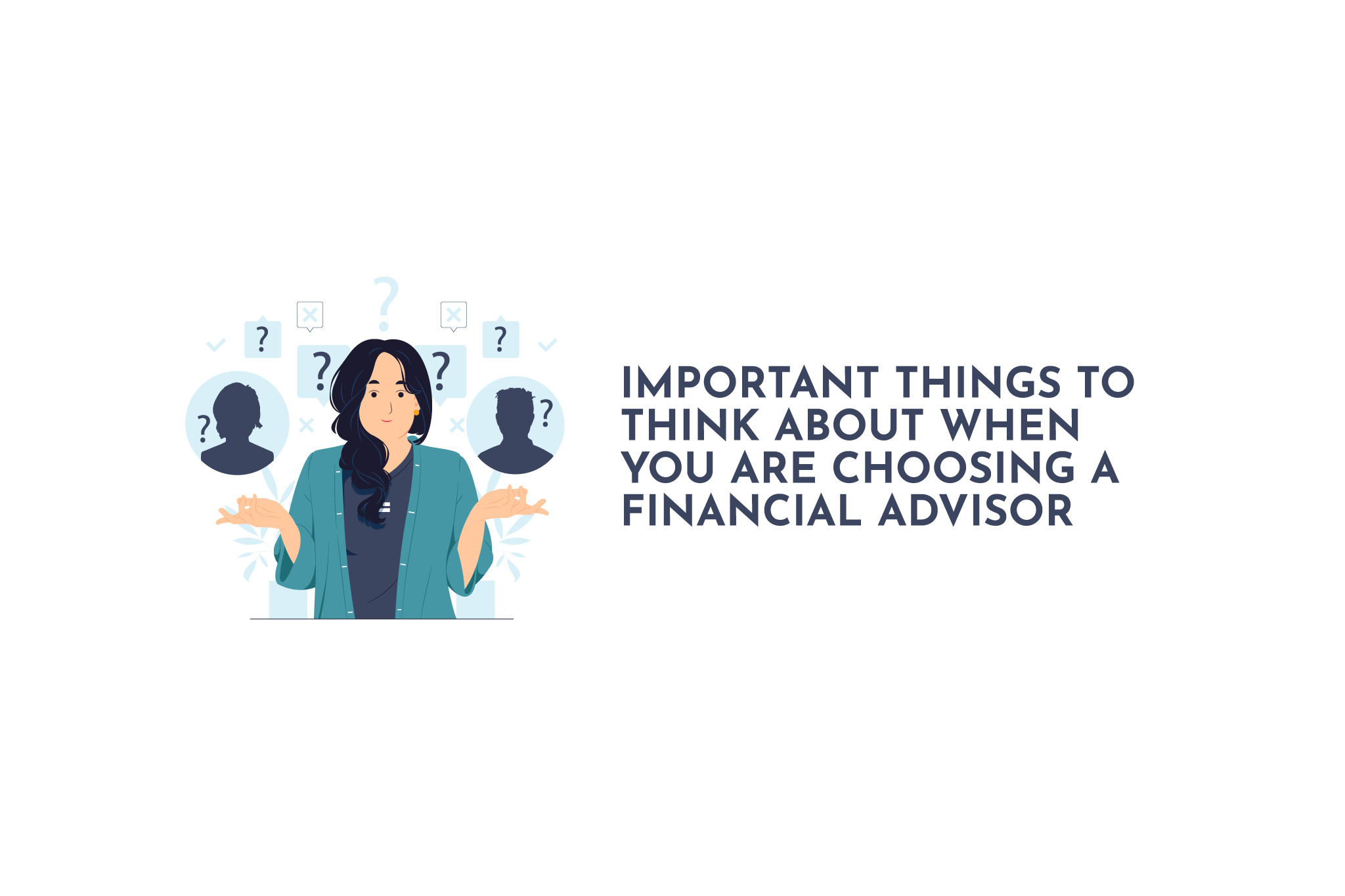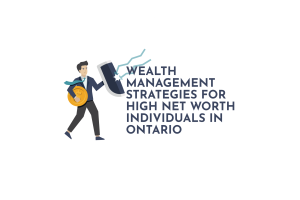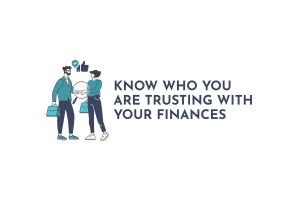Wait, do I get to choose who my financial advisor is? It isn’t simply choosing a financial advisor that my parents used, or the next available teller when I’m in line at the bank? Do I have options? Were there many other choices I may or may not have been aware of? Are there things I should have considered before I chose my advisor? Can I change advisors? Will that cost me anything?
I get it. The idea of choosing a financial advisor to help you plan for today’s financial security and tomorrow’s goals and dreams can be overwhelming. What should you base that decision on? For the answer to this question, and the other ones posed earlier, read on!

Do You Know What a Fiduciary Duty Is?
This is a key component of financial advice and it is making sure that you understand what a fiduciary relationship is and what a fiduciary duty is. So, let’s start by defining what a fiduciary is.
A fiduciary is someone who holds an ethical and legal responsibility to his or her clients. This means that a fiduciary duty implies that, first and foremost, someone with a fiduciary role must always act in the best interest of their clients and not themselves. The role of someone who is giving you financial advice is a fiduciary one. This is sometimes viewed as murky waters because, in all likelihood, your financial advisor is paid based on the advice that they give you.
The key fiduciary duty of a financial advisor is to steer clients towards the best decision for the client’s unique circumstance and not based on how much compensation they earn. For example, if a client had a risk tolerance that indicated that they should invest in GICs, but an advisor stood to make more money selling them a high-risk mutual fund, it is the fiduciary duty of the advisor to make the recommendation to the client to invest in the GIC.
Who is Considered a Fiduciary in Canada?
Examples of Fiduciary Relationships in Canada Include
- A Trustee and a Beneficiary of an Estate
- Attorneys and Their Clients
- Directors and Officers of a corporation
- Financial Advisors and their clients
One relationship you rarely see included in any list of Canadian fiduciary relationships is that of Banker and Depositor. Dating back to court decisions as far back as the 1800’s the relationship between a bank and a depositor has been excluded from the idea of a fiduciary relationship. The relationship between you and your bank is that you deposit money, and they are then allowed to take that money and do with it as they please, with the understanding that they are required to return that money, plus any interest payments promised, upon your demand.
So, when you are at the bank waiting in line to see the next customer service representative, remember that they hold no responsibility to make the best recommendation for you. Many of these client-facing roles at the bank are subject to extreme pressure to sell you products that you don’t need for the bank to meet sales targets.
Now That I Know What a Fiduciary is, What’s Next in Choosing my Advisor?
This is where, for years, the decision was ‘simple’. There was a representative from an insurance or investment company that looked after your parents. At some point in time they would meet you as well. They would extoll the virtues of saving money for the future and making sure that you had an insurance plan set up, and you would let them look after it for you.
The sad part is that with a decision this important for many people the key determining factor historically was proximity. You chose someone to look after your money because they were there already. Whether this is in your home or at the bank, there are much better ways to make such an important decision.
There are many factors that you should consider. A big part of choosing an advisor is asking questions. Lots of questions. You want to get a feel for what the advisor you are speaking to is looking for.
Things to Consider
- Who is their ideal client?
- Do you have a process that you follow with ideal clients?
- What do you help your clients with the most?
- Are there people they won’t work with?
- How does the advisor get paid?
A good advisor will have answers to all of these questions. There needs to be a feeling of trust and comfort established between any client and their financial advisor because you need to share many details about your life with an advisor to allow them to build the best plan for you.
Often Overlooked but Very Important
The one question that I suggested that is often overlooked is finding out what the process that the advisor follows with clients looks like. If the advisor has a process that looks like something that you aren’t capable of holding up your end of, then this probably isn’t going to be a great fit. This is a point that gets lost by so many people: the relationship with your financial advisor is a two-way street.
You need to understand two significant things. The first is their process and how it will help you in the long term. The second thing is what is expected of you to ensure the relationship runs smoothly. As the client, your willingness to participate in the planning process is essential to its success. A successful partnership with your financial advisor requires good input from you. There will be choices you need to make, documents and information you need to provide, and generally a level of participation that you need to meet to make the process work.
When you review the planning process that your potential advisor will follow with you, ensure you can provide the information they need to complete the process with you. If you can’t commit to that, then the plan won’t be successful and everyone involved will be frustrated, and you won’t be successful in achieving your goals.
How Should This Look?
Let’s take a look at the planning process that is in place at Strata Wealth & Risk Management.
In most cases, the planning process starts with an introduction. A referral from someone you know and trust is a great way to meet a new financial advisor and determine if you can work together. Then, we learn about you and assess the connection between you and the advisor. This happens before moving forward with the financial planning process.

The Importance of Assessing Compatibility
The second step in the process at Strata is the most important one, as I previously mentioned. Step two is determining if a fit exists between you and the advisor you are speaking to. You need to know what the process that the advisor follows is and how it meshes with your expectations.
If the values line up, then the way to proceed is clear. If they don’t, and again, this is a key thing that makes the team at Strata unique, Strata Wealth & Risk Management has a goal of using their network to try and find you an advisor you would be able to work with to achieve your goals. This shows everyone’s commitment to the planning process. It is not reasonable to expect that everyone will fit with the process that Strata Wealth & Risk Management follows. Still, Strata’s advisors understand how important it is for everyone to have a plan that they can follow, so if there isn’t a fit with them, they will guide you to someone where there may be a better fit with what you are looking for.
After you determine if there is a fit, you will proceed with the planning process itself. This means that there will be lots of discussions about your goals and where you stand right now regarding achieving those goals.
The result will be a series of recommendations for how to get on track and stay on track to achieving your goals. These results are a ‘living document’ because your goals and dreams may change over time. The planning process doesn’t end with the first set of recommendations, instead, it is the start of a long relationship where you and your advisor will review and update your plans regularly to ensure that the plan always reflects your goals.
Can I Change Advisors?
The answer to this is yes. Just because you started with one advisor when you were younger, if you feel that doesn’t fit well with your current situation, you can change advisors, even if they work for different companies.
There are processes in place with investment companies to make this as seamless as possible, and the government allows it as well. There is a bit of extra paperwork involved in the transition process to make sure you don’t accidentally trigger a bunch of taxable income for yourself. Still your new advisor should be capable of handling the transition for you without that happening.
It also shouldn’t cost you anything to do this transfer. Just make sure you have an up-to-date statement showing your current holdings and your new advisor should be able to determine any fees or gains that would be triggered and how to avoid them for you.
Conclusion: Choosing a Financial Advisor
Your financial advisor should be a part of the team of experts you utilize to make your life easier. Examples of experts you will use over your lifetime are lawyers, accountants, mortgage brokers (for more on this, read this. Then you will agree, never the bank for a mortgage, always an independent mortgage broker), and doctors.
We use experts for a simple reason. It isn’t reasonable to expect yourself to know enough about everything to be able to do it all yourself. You don’t process your real estate legal transactions or try to fix your broken arm. Your financial advisor fits into that same team of professionals. They have the tools and expertise to help you make a plan to achieve your financial goals. Make sure that you take advantage of this expertise.
The best way to do this is to find an advisor you like and trust with a process that will help you reach your goals. A great first step is reaching out to the team at Strata Wealth & Risk Management and setting up a meeting. The worst that can happen from making that appointment is that you figure out what you’re not looking for. The best is that you end up on the way to achieving your long-term financial goals with an advisor who will help you along the way.




